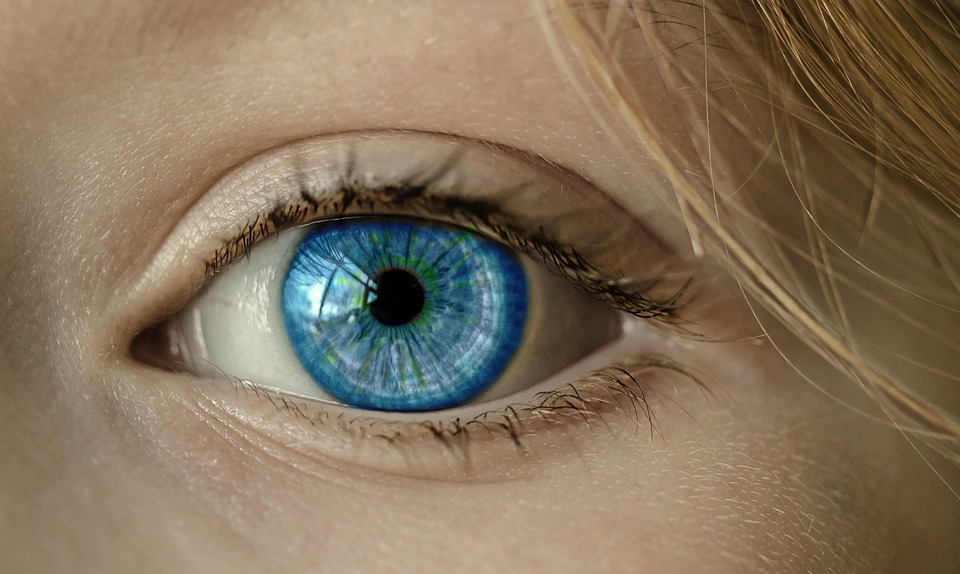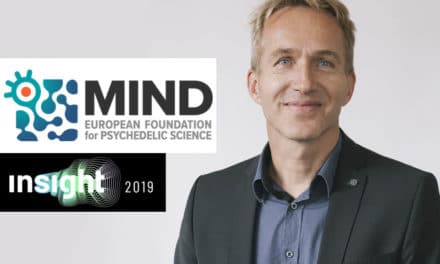Oliver Hovmand is a psychiatry resident in Denmark who has written the world’s first academic textbook on psychedelic research, Medical Psychedelics. The book explores the clinical applications of psychedelic medicines and dives deep into the current body of research surrounding this topic. I spoke with Oliver about the use of psychedelics in treating personality disorders, the efficacy of microdosing, and the historical body of psychedelic research from the ‘60s and ‘70s—including some unfortunate studies that happened in Denmark back then.
Thanks again for speaking with us, Oliver. Last time we spoke, we covered your book. Today, I’d like to chat with you about how psychedelics can be used to help people in a clinical setting. Are there any specific applications for psychedelics that you’re particularly interested in? These medicines can be used to treat depression, pain, anxiety, PTSD… but is there one that you think psychedelics are the most helpful for?
I’m very interested in MDMA for the treatment of PTSD. That has been my primary focus until now. But I also have an interest in the classical psychedelics such as LSD and psilocybin, especially in terms of microdosing and in the treatment of depression. I think that when these drugs get back into the clinic it will make a huge impact on how psychiatry is practiced.
MDMA-assisted psychotherapy for the treatment of PTSD is huge. There are a lot of people who could really use MDMA to work through their trauma, and I wish it were more available for those who need it. But it seems like we’re getting closer to that, which is a good thing if you ask me.
I definitely think that MDMA will be the first drug to get sort of into the mainstream practice.
People who want to use psychedelics outside of the clinical model (outside of any sort of legal model at all) ask me what substance they should start with. I often suggest starting with MDMA because it is a good introduction to the psychedelic experience and a way to become familiar with it without having some of the more potentially uncomfortable moments that can occur with classical psychedelics like LSD or psilocybin.
Yes, it is a good one to start with.
Are there any clinical applications that haven’t been studied yet that you think psychedelics might be good for?
Maybe some of the personality disorders like borderline personality disorder, once MDMA, LSD, and psilocybin get reintegrated back into the clinic and clinicians will be able to carry out more psychotherapy for treating personality disorders alongside these medicines. There’s some real potential there.
I haven’t yet heard of anyone suggesting using psychedelics for treating personality disorders before. That’s a really interesting idea.
It hasn’t been studied in the wave of modern research, but back in the ‘60s and ‘70s when LSD was still used by psychiatrists, I think that some patients with personality disorders were treated with psychedelics.
Ah, so there’s some historical research there?
Yeah, I think therapists like Stanislav Grof have had patients with what today we call personality disorders.
I must not be familiar with that research. The more I’ve gotten into this field, the more I realize that there are thousands of studies that I’m not even aware of at all.
Yes, there’s an amazing amount of research that went on back then. But that research is of very poor quality compared to modern-day studies.
And that’s why a lot of modern research is trying to replicate what was found in previous research, but using better methods so it carries more weight.
Yeah, the research that was carried out in the ‘60s and ‘70s was truly of poor quality. It can still serve as inspiration for the modern day sciences, but a lot of the research that is happening now and within the past 5-7 years has been one-to-one replicas of the research that was carried out back then.
Do you have any aspirations to get involved with conducting psychedelic research yourself?
Yeah, I definitely have.
Would you like to study the efficacy of using psychedelics for treating personality disorders? What would you like to do, research-wise?
If I were to go for a PhD, I would like to focus on microdosing psilocybin or LSD in order to treat depression.
I see. Do you have any experience with microdosing, yourself?
I have microdosed for a few months but only in order to try it out, not to achieve anything specific.
Yeah I have mainly experimented with microdosing out of curiosity, but I found that it was really helpful for me, almost surprisingly so. I don’t know if that was just a placebo or what, but I did find it to be helpful. You know, the placebo effect is real, so maybe it had something to do with it.
I think that there’s definitely always a placebo effect, because we want to see an effect and then we also experience it. But I also think that there is some sort of effect with microdosing.
Yeah, I think it’s doing something, we just don’t know exactly what it’s doing, haha!
It would be very strange if it weren’t doing something.
Did other students and professors in your medical school have any strong opinions about psychedelics? Or was it even discussed at all?
I have had discussions with my colleagues and fellow students in medical school about psychedelics, but it wasn’t something that was officially addressed by the school—it wasn’t part of the curriculum. But many people I knew were interested in reading this book and discussing it with me, and some of them saw some real potential. Now I’m working at a psychiatric ward and we take turns speaking to each other about psychedelics. A few months ago, one of my colleagues was reading about the use of psychedelics for treating depression, and the senior doctors in the department were very interested in learning about it, so it’s definitely possible to have a serious discussion about psychedelics with the other doctors. But among the older doctors, they think it’s very dangerous.
It’s good to be skeptical, and there are risks when it comes to working with psychedelics, as you well know.
Yeah, in Denmark there are some horror stories from the ‘70s when some Danish doctors who were experimenting with psychedelics at one of the Danish mental hospitals carried out some research in the basement where the patients were given psychedelics in high doses and then were left all alone. And many people knew about these studies, which of course went horribly.
Well of course!
So when I speak about psychedelics at a family gathering or with [some] colleagues then they often bring up these studies, which went horribly, and they fear that all uses of psychedelics will go wrong. They have a very hard time distinguishing between the research where psychedelics are used in a responsible manner and the research from the ‘70s where they were used irresponsibly.
Some of those researchers back then just didn’t know what they were doing. I think that for the medical community and the rest of the world to really understand psychedelics, we have a lot of educating to do for people to understand that things like set and setting, knowing that the substance is of relatively good purity, and knowing what your dosage is are really important factors in how the experience will go. And for clinical applications, those are really important as well. If you’re going to try to treat someone with PTSD by putting them in a basement and giving them a high dose of LSD without any preparation or support, it’s probably going to go poorly. You’re probably going to end up making things worse for that person.
Those studies back in the ‘70s—they are sort of the “psychedelic ghosts” in Denmark, figuratively speaking. Because a lot of the psychiatric professionals only know about that research.
It’s still haunting them.
Yes, the only thing many Danish people know about psychedelics today is that there were some LSD research studies in the ‘70s that went incredibly poorly.
Thanks again for taking the time to speak with me today Oliver, and thank you for putting the time and effort into creating an academic textbook about the clinical uses of psychedelics. Hopefully students will end up learning from your book, and hopefully you’ll help heal the world a little bit as well.
That’s the plan. Thanks for your time, David.
We are grateful to Oliver for speaking with us. You can read our first interview with Oliver here. You can also follow him on Instagram and purchase his book Medical Psychedelics by clicking here.












